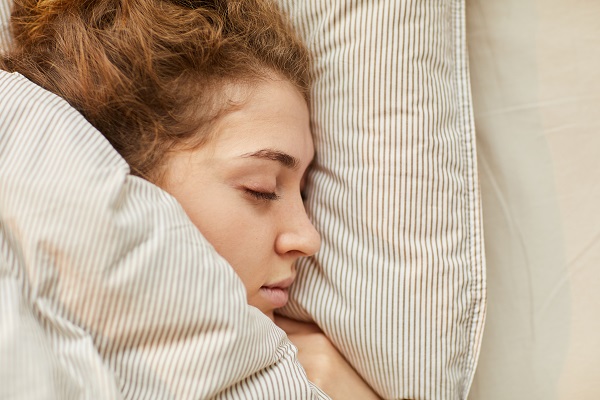Sleep deprivation is a common phenomenon amongst most people because many a time, they fail to recognize that this condition exists in their life. However, constantly yawning is not the only symptom of being sleep deprived; there is much more.
Contents
How Do You Know If You Have Sleep Deprivation?
A good night of sleep is going to instantly make you active and up for a new next day. You feel fresh even if it’s a Monday because you had your time to rest. However, a restless night of sleep makes you feel irritated and unpleasant the next day. You also feel tired and lousy and are low on your energies. Notice that your mood is what changes instantly. Though this may feel minor and unnoticeable, prolonged nights of disturbed sleep can deteriorate your mood to an extent wherein your mental health can be at stake.
Your mood and energy levels are directly proportional to your quality of life. For example, low energy levels will directly reflect on your work motivation, social life, interest in your surroundings, ability to handle stressful situations, and being prone to weaker immune health.
But before we get into the details, let us understand the causes of sleep deprivation.
causes:
while you may feel that you get to bed at 10 pm and wake at 6 am, so you have a night of quality sleep. But just being in bed and having a good night of quality sleep are two different things. Therefore, your newborn can cause disturbed sleep and several reasons ranging from work stress to disturbing sleeping environment.
The Five Most Common Reasons For The Lack Of Sleep In The Masses:
Too much stress- you should always sleep like a child because they forget about their present and dream of another world when they go to bed. Stress has been the main reason for insomnia, and remember, there are no medications that can decrease your stress because you need to learn to cope with them. It’s natural to feel overburdened or stressed about your finances or your achievements, but in the end, all that matters is how much progress you have made in life.
To help you cope with this feeling, it would be best to start with meditation or yoga. Then, start with mental therapy or counseling and engross yourself in things that will relieve this unnecessary stress. Finally, confide in your dear ones because you get a good night of sleep when the hearts light.
Unusual working hours- people working in call centers, medical professionals, and all those experts having a night shift will face this problem at the beginning of their careers. While you may see your colleagues or seniors having no issue with deprived sleep, you may struggle even to stand. This is because we have a natural biological clock called the circadian rhythm that puts you to sleep at night and makes you wide awake in the morning. It works in conjunction with the light rays that tell your body its day when bound to the photoreceptors. And when you do shifts, this cycle gets disrupted, making you feel terrible about your work.
Disturbing environment- do you live in a room closer to the streets with heavy traffic or a lane close to a pub that makes a lot of noise, especially during the weekends? Then it is inevitable for you to sleep soundly and peacefully. Some of us are even unlucky to have loud neighbors that play music all night. Though you may get used to this type of commotion around you, your sleep quality will be disrupted because you will be sensitive and tend to have this noise or sound being played in the back of your mind, and that’s not a good night of sleep.
Binge-watching- we’re in the superfast world, and so has our sleep become super-fast as well. As a result, Binge-watching is a widespread problem associated primarily with the youngsters. one episode, two-episode and then gulp down the entire series going to bed at 4 am. Binge-watching also makes you tempted for binge eating as most people get tempted to eat heavy food at midnight. Because everything around you is dark, just the screen light flashing on your eyes can also pose a threat to your eyesight, making your eyes watery every time you try to sleep.
Sleeping disorders- sleeping conditions like insomnia, sleep apnea, or restless legs syndrome are issues that need to be resolved because they affect the quality of your life. In addition, these conditions need to be diagnosed quickly, as soon as you see the symptoms, because a lack of sleep will pose a threat to your cardiovascular health as well.
Signs and symptoms of sleep deprivation
- You feel irritated quickly.
- Your energy levels are consistently low, eyes pale, and a feeling of fatigue.
- Constant yawning throughout the day.
- difficulty in focusing and paying attention to important work
- Lower libido and interests in socializing.
- need several alarm rings to get out of the bed finally
- I feel like taking a nap every time, even at school, college or work.
- Constant mood changes, feelings of anxiety, depression, and even feeling paranoid.
How To Prevent Sleep Deprivation?
If you even notice one or two symptoms mentioned above, along with the causes related to you, then you need to keep a close eye on your sleep patterns. For example, you may think that sleeping pills will help you but remember, this is for the short term, and popping pills for a long time can cause several other problems.
instead of panicking and getting anxious (which will lead to sleepless nights again), try these methods to handle this issue by yourself:
get to bed on time- avoid late-night parties, binge-watching movies, working late at night, prolonged screen time, and unpleasant conversations with your friends and family because these conversations will revolve in your mind making you think and overthink.
Maintain a night diary- when troubled thoughts make you feel anxious, start noting it down in your diary. You may not have anyone to talk to in person; make your diary your friend to confide. That’s an easy way to lift the burden because you hit the bed.
Exercise regularly- exercise causes your body to burn the bad energy out, uplifting your mood and helping you boost the immune system. On average, an individual should world out at least 30 minutes a day, five times a week, to maintain a good lifestyle. However, do not exercise at nighttime before you sleep because it can keep you out from sleeping.
Have a close eye on your diet- too much of sugary food, oily and heavy food can cause acidity, especially at night which can keep you from having a good night of sleep. Take more fluids and even if you are having a heavy meal, make sure to eat it early and not close to bedtime.
The Bottom Line!
Support from your dear and near ones is essential during this anxious, stressful time. Give yourself some time to adjust to the preventive changes. However, if this doesn’t help, it would be best if you sought some professional help. Would you please book an appointment with your doctor and talk to them about the problem of sleep deprivation? Address your issues and seek the best solution.





